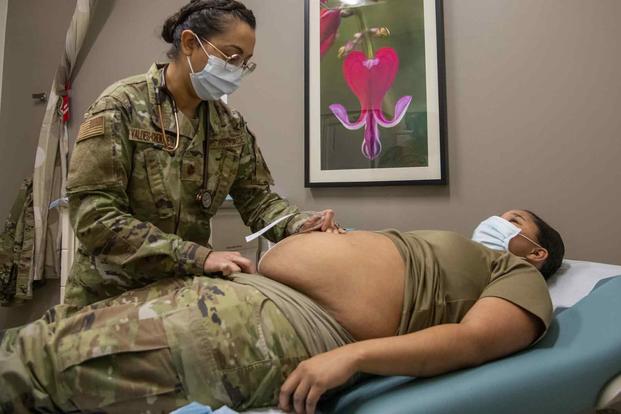Expecting a child is one of the most exciting and critical moments in a family’s life. When a service member or their dependents receive prenatal care through military healthcare facilities, they trust that their providers will offer expert care during one of the most vulnerable times of life. However, when prenatal mismanagement occurs, the consequences can be devastating for both the mother and the child.
If you or a loved one has suffered due to prenatal mismanagement at a military medical facility, Khawam Ripka LLP is here to help. We understand how the military healthcare system works and have extensive experience representing military families who have faced medical malpractice during pregnancy.
What Is Prenatal Mismanagement?
Prenatal mismanagement refers to the failure of healthcare providers to meet the standard of care during pregnancy, leading to preventable complications or harm. In a military medical facility, this could happen for a variety of reasons, including:
- Failure to diagnose complications: Failing to recognize or act on warning signs of conditions like preeclampsia, gestational diabetes, or fetal distress.
- Improper monitoring: Neglecting to monitor both the mother and baby for key health indicators, such as blood pressure or fetal heart rate.
- Delayed interventions: Waiting too long to take necessary actions, such as performing a Cesarean section (C-section) when there are signs of fetal distress.
- Medication errors: Prescribing medications that are inappropriate for pregnancy or failing to manage medication risks properly.
- Failure to provide appropriate prenatal testing: Not offering necessary screenings for birth defects, genetic conditions, or maternal health concerns.
- Inadequate postnatal care: Failing to provide necessary care or follow-up after birth complications or a traumatic delivery.
When these mistakes happen, the results can be serious, potentially leading to birth defects, premature birth, maternal injury, or even stillbirth. If mismanagement occurred during prenatal care, families have the legal right to seek compensation for the harm caused.
Legal Rights for Service Members and Their Families
Military families have specific rights under federal law, but the legal landscape surrounding medical malpractice in military facilities can be more complex than civilian cases. Active-duty service members, their dependents, and retirees may be entitled to pursue a Federal Tort Claims Act (FTCA) claim if they were injured due to the negligence of a military healthcare provider.
For prenatal mismanagement, this might include situations where:
- Delayed or missed diagnoses contributed to complications.
- Negligence during labor or delivery led to birth injuries or the need for extensive medical intervention.
- Failure to properly assess maternal health led to serious consequences for the mother or baby.
A military medical malpractice attorney can guide you through the complex claims process and ensure that all the necessary documentation is gathered to support your case.
How to Prove Prenatal Mismanagement in Military Healthcare
Establishing that prenatal mismanagement occurred involves proving that the healthcare provider breached their duty of care. In military cases, this requires demonstrating that the treatment or lack of action directly led to harm. Key components of building a strong case include:
1. Medical Records Review
Obtaining comprehensive medical records from the military medical facility where prenatal care was provided is the first step in building a case. These records may include:
- Ultrasound reports and imaging results
- Blood work and lab results
- Physician notes and prescriptions
- Any documentation of complications or warnings related to the pregnancy
A careful review of these records can help identify signs of mismanagement or neglect.
2. Expert Testimony
Prenatal care is a complex field, and having expert testimony from obstetricians or gynecologists who specialize in prenatal care is essential. These experts can testify to whether the standard of care was met and how the mismanagement contributed to the harm experienced by the mother or baby.
3. Witness Statements
Witnesses who were present during prenatal visits, labor, or delivery can provide valuable insights into what went wrong. This may include other healthcare providers, family members, or individuals who observed the care being provided.
Filing a Claim for Prenatal Mismanagement in Military Medical Facilities
If you believe you or a loved one has been harmed due to prenatal mismanagement in a military healthcare facility, you have the option to file an administrative claim under the FTCA. The claim process involves:
- Filing a Standard Form 95 (SF-95): This form is the first step in filing a claim under the FTCA. It must be filed within two years of discovering the injury or complication.
- Submitting Supporting Documentation: Along with the SF-95 form, you must provide detailed documentation, including medical records, expert opinions, and other evidence that demonstrates negligence occurred.
- Review by the Department of Defense (DoD): The DoD will review the claim and determine whether to accept or deny the case. If the claim is denied, you may have the option to appeal or pursue other legal remedies.
- Settlement or Litigation: If the claim is successful, compensation may be awarded through settlement or litigation. In some cases, the government may offer compensation directly without the need for a lengthy court battle.
Given the complexities of this process, working with a military medical malpractice lawyer is highly recommended to ensure your rights are protected and your case is handled with care.
Compensation for Prenatal Mismanagement
If your case is successful, compensation for prenatal mismanagement in a military medical facility may cover:
- Medical expenses: All past and future medical bills related to the harm caused by prenatal mismanagement.
- Pain and suffering: Both physical and emotional distress experienced by the mother, as well as any trauma or suffering endured by the child.
- Loss of income: If the mother or father had to miss work or career opportunities due to the negligence, this can also be included in the compensation.
- Long-term care costs: For children born with birth defects or complications requiring lifelong medical care and support.
How Khawam Ripka LLP Can Help
At Khawam Ripka LLP, we understand the profound impact that prenatal mismanagement can have on military families. We have the experience and expertise to navigate the complex process of holding military healthcare providers accountable for their negligence.
We offer compassionate, knowledgeable representation to ensure that you and your family receive the justice and compensation you deserve. Whether you are an active-duty service member, a military dependent, or a veteran, we are here to advocate on your behalf.
Internal Links for Further Reading
- Legal Help for Military Families Affected by Emergency Room Negligence
- What Happens if You’re Injured During a Medical Trial on a Military Base?
Contact Khawam Ripka LLP Today
If you or a loved one has been affected by prenatal mismanagement in a military healthcare facility, contact Khawam Ripka LLP for a free consultation. We’ll help you understand your rights and take action to hold military healthcare providers accountable.

 Call Now- Open 24/7
Call Now- Open 24/7





